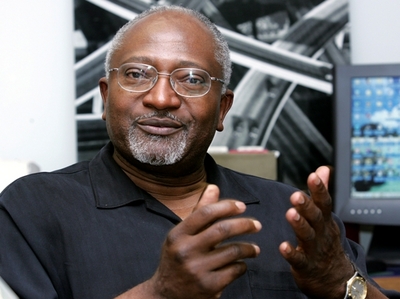Climate-related disasters in
the southern United States have outnumbered those in other regions of the U.S.
annually in both scale and magnitude by a ratio of almost 4:1 during the past decade.
The Southeast U.S. for
the period 1980-2012 had more billion-dollar disasters than the rest of the
country combined. The southern region is vulnerable because of its physical
location. The region is also vulnerable
because of its high prevalence of concentrated poverty, uninsured households, income and wealth inequality, health care disparities, and food insecurity--combined create a perfect storm of vulnerability if and when natural and
human-made disasters strike.
What We Know
Given the South's unique history, a "southern initiative" is needed to address climate vulnerability, environmental injustice and the "look-the-other-way" practice of unequal protection and develop strategies for building just and resilient communities. Numerous reports document climate change "hot-spots" and the southern region's vulnerability, including the impact of drought, heat islands, flooding, hurricanes and sea-level rise--areas where low-income households, African Americans and other people of color are placed at special risk of poor health, socioeconomic barriers and climate-related challenges resulting from discriminatory government policies and actions. A few of these studies are listed below:
In the Wake of the Storm: Environment, Disaster and Race After Katrina (Pastor, Bullard, Boyce, Fothergill, Morello-Frosch, and Wright, 2006)
Vulnerability and Climate Change in the Southeast U.S. (Oxfam, 2009)
Climate Change Impacts in the Southern United States: Draft Discussion Paper (Stratus Consulting Inc. for EPA Region 4, 2010)
Social Vulnerability to Climate-Sensitive Hazards in the Southern United States (Christopher T. Emrich and Susan L. Cutter, 2011)
Climate Change, Environmental Challenges and Vulnerable Communities: Assessing Legacies of the Past, Building Opportunities for the Future (Joint Center for Political and Economic Studies 2012)
Climate Change and the Southeast (EPA, 2012)
The Wrong Complexion for Protection: How the Government Response to Disaster Endangers African American Communities (Bullard and Wright, 2012)
Climate of the Southeast United States: Variability, Change, Impacts, and Vulnerability (NCA Regional Input Reports, 2013)
National Climate Assessment: Southeast and Caribbean (NCA, 2014)
Risky Business: The Economic Risks of Climate Change in the United States -- The Southeast (Kate Gordon et al., 2014)
Role of Black Colleges in the Quest for Climate Justice
Historically black colleges and universities (HBCUs) have played a significant role in training African Americans leaders in all fields. More than 80 percent of the 104 HBCUs are found in the Gulf Coast and South Atlantic region of the United states--a region of the country where intense hurricanes, drought, heatwaves, flooding, and other climate-sensitive hazards are commonplace. Many southern communities where HBCUs are located and where they draw the vast majority of their students are at ground zero in the fight for climate justice.
(Note: You can view every article as one long page if you sign up as an Advocate Member, or higher).






